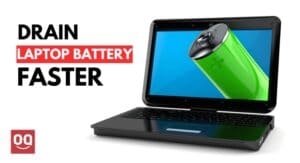With the shift towards remote work becoming the new normal, it’s essential to have a reliable and efficient laptop to ensure your productivity remains at its peak. However, choosing the perfect laptop for your work-from-home setup can be quite the challenge, especially with the overwhelming number of options available in the market today.
Worry not, we’ve got you covered, as we’ll guide you through the key laptop specifications you should look for when making that crucial purchase to elevate your remote work experience. So, let’s dive in!
1. Processor (CPU)
The processor is the heart of your laptop, responsible for executing all tasks and applications you’ll be using daily. Generally, a faster processor means a smoother work experience, but it also depends on the type of work you do.
For light tasks like browsing the web, word processing, and handling emails, a basic dual-core processor like Intel’s Core i3 or AMD’s Ryzen 3 should suffice. However, if you’re into more intensive tasks like graphic design, video editing, or programming, you’ll need a more powerful processor like Intel’s Core i5, i7, or AMD’s Ryzen 5, 7.
2. RAM (Memory)
Random Access Memory (RAM) allows your laptop to store and quickly access the data it needs to perform tasks. The more RAM you have, the more applications and files your laptop can handle simultaneously without slowing down.
For most remote workers, 8GB of RAM should be sufficient for smooth multitasking. However, if you work with large files or resource-intensive applications, consider getting 16GB or more to ensure your laptop doesn’t struggle to keep up with your workload.
3. Storage
When it comes to storage, you have two main options: Hard Disk Drives (HDD) and Solid State Drives (SSD). HDDs are generally cheaper and offer more storage capacity, but they’re slower and more prone to failure due to their mechanical nature. SSDs, on the other hand, are much faster, more reliable, and energy-efficient, but they come with a higher price tag.
For remote work, we highly recommend opting for an SSD due to its speed and reliability. A 256GB SSD should be enough for most users, but if you work with large files or need to store a lot of data, consider getting a larger capacity or even an external hard drive.
4. Display
A good display is crucial for a comfortable remote work experience, especially if you spend long hours staring at your screen. To reduce eye strain, choose a laptop with a Full HD (1920×1080) resolution or higher. This will provide you with a sharper and clearer image, making it easier to read text and work with detailed visuals.
Size-wise, a 13 to 15-inch screen should suffice for most users, but if you require more screen real estate for tasks like video editing or multitasking with several applications, consider a 17-inch display or even connecting an external monitor to your laptop.
5. Battery Life
One of the perks of remote work is the flexibility to work from anywhere, be it a coffee shop or a park. To make the most of this freedom, you’ll need a laptop with a robust battery life. Aim for a laptop that offers at least 8 hours of battery life, so you don’t have to worry about constantly searching for a power outlet.
6. Connectivity
Having a variety of connectivity options on your laptop is essential for seamless remote work. Ensure your laptop comes with multiple USB ports, an HDMI port for connecting an external display, and a headphone/microphone combo jack. Additionally, make sure your laptop has Wi-Fi 6 compatibility and Bluetooth 5.0 for faster and more reliable wireless connections.
7. Operating System
Your choice of operating system (OS) can have a significant impact on your remote work experience. Windows and macOS are the most popular choices, each with its pros and cons. Windows is more versatile and compatible with a wider range of software, while macOS is known for its stability and seamless integration with other Apple devices. Consider your specific needs, software requirements, and personal preferences when choosing an OS.
The Bottom Line
Choosing the best specs for your remote work laptop is all about finding the right balance between power, portability, and your budget. With this comprehensive computer products guide, you should now have a better understanding of the various options available in the market. And of course, don’t hesitate to reach out to our team at TechnoQia for personalized recommendations and expert advice. Happy shopping!





